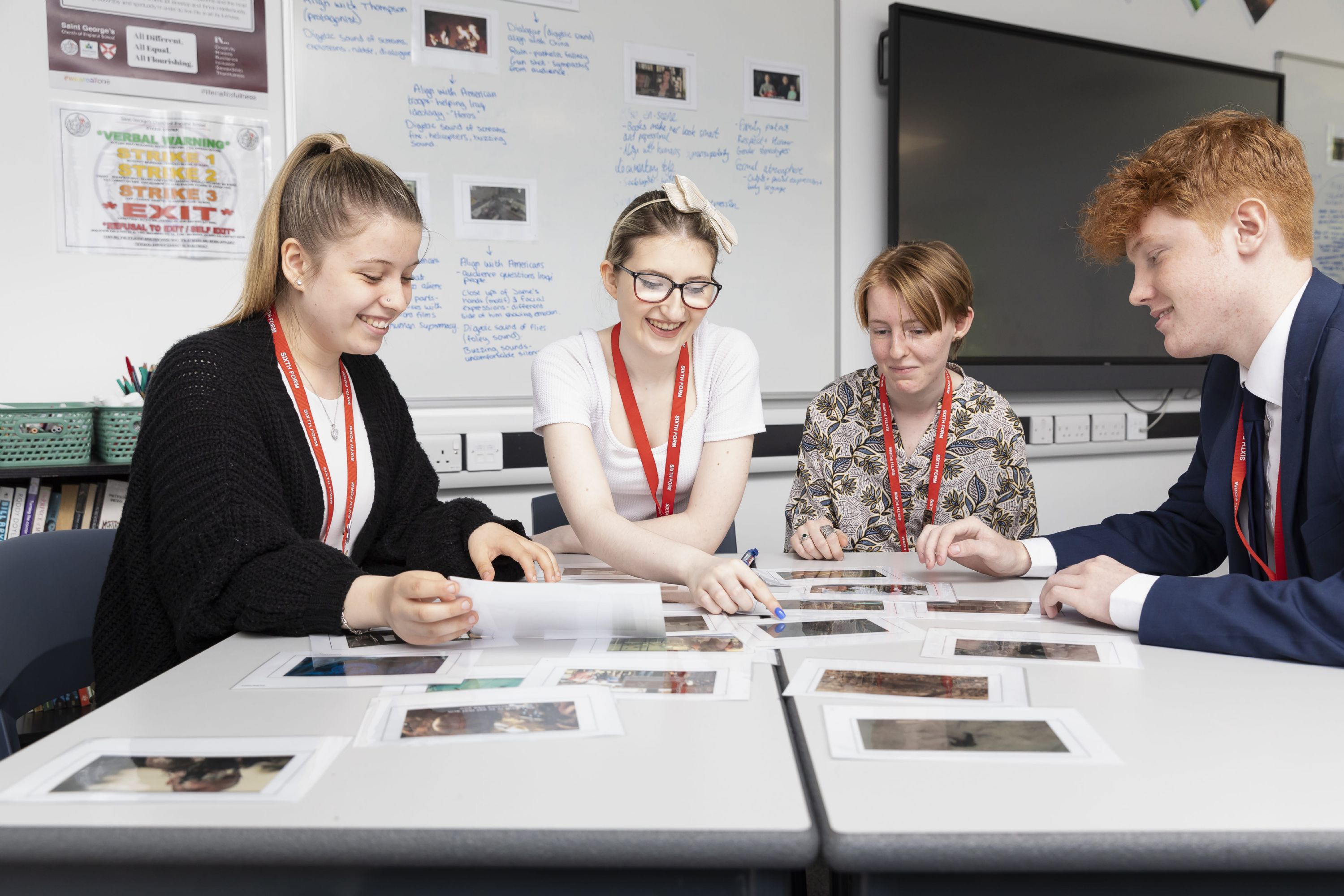Film Studies
Curriculum Leader: Mrs A Betts bettsa@saintgeorgescofe.kent.sch.uk
The study of film, in all its forms, holds a prominent place in our critical understanding of the modern world.
Moving images have always been new and exciting, and Film Studies allow students to study a diverse range of films in order to consider how they reflect the time and place of construction.
Film Studies students can progress to a wide range of career opportunities. These range from those that specifically relate to film – whether in academia, creative industries, film festival/ cinema programming, or arts administration – to other spheres, such as publishing, journalism, public relations, and education.
Subject Requirements
- GCSE English Language - Grade 5 or above
- GCSE English Literature - Grade 5 or above
Intent
The diverse range of films that comprise the OCR syllabus ensures that students experience the progress of film from conception to the current day. This allows students to develop intellectually, making links between film and art, literature, history and drama.

Implementation

We see the study of film as a journey through the history of film. We look at time and place of production and the audience reaction to what they see. Students are encouraged to make connections between films and movements to understand how context impacts on the finished film. Students will look at silent films from around the globe, moving on to The Golden Age of Hollywood and finishing with films of the 21st century.
We ensure that SEND and disadvantaged children are given the necessary support in class to fully access the Curriculum and that equal opportunities are given to all.
Impact
Through the study of a range of films, students will be equipped to further their knowledge of film at university or in the world of work. Issues raised and ideologies represented will develop empathy, understanding, and compassion.
Topics
Year 12 Film Studies Topic Information
Component 1: Elements of Film
- Section A - Film Form in US Cinema from 1930 to 1990
- Section B - Comparative Contextual Study
- Section C - Close study: European film
Component 2: Understanding British Film
- Produce an individual key sequence from a new British film or a screenplay for a key sequence from a new British film
- Carry out an evaluation of their production
Year 13 Film Studies Topic Information
Component 1: Film History
- Section A—US cinema from the silent era to 1990
- Section B—European Cinema History
Component 2: Critical Approaches to Film
- Section A—Contemporary British and US films
- Section B—Documentary
- Section C—Ideology in US independent, Non-US English language, Non-European Non-English language films
Component 3: Making a Short Film
- Production of a 5-minute short film or a 10-minute screenplay for a short film
- A digitally photographed storyboard
- An evaluative analysis of the production in relation to professionally produced set short films.
Assessments
70% Examination and 30% Coursework.
| Component 1: Film History (35%) |
Component 2: Critical Approaches to Film (35%) |
Component 3: Making a Short Film (30%) |
|---|---|---|
|
2 Hours - 105 Marks |
2 Hours - 105 Marks |
90 Marks |
|
Learners will develop knowledge of film form through the study of at least three US set films Learners will also study set films from two major European film movements or stylistic developments. |
Learners will further develop knowledge and understanding of key critical approaches to film and of narrative, genre, representations and spectatorship. |
Learners must study one compilation of short British fiction films. Learners have the opportunity to demonstrate knowledge, understanding and skills. |
Examining board link: OCR A Level Film Studies
Film Studies Future Paths
University courses in film, media, television, and theatre studies.
Careers can include: Film Director, Director of Photography, Film Producer, Film Editor, Lighting Technician, Runner, Location Manager, Sound Technician, Programme Researcher, Hair and Make-up Artist, Film Journalist and many other careers across the media industry.
